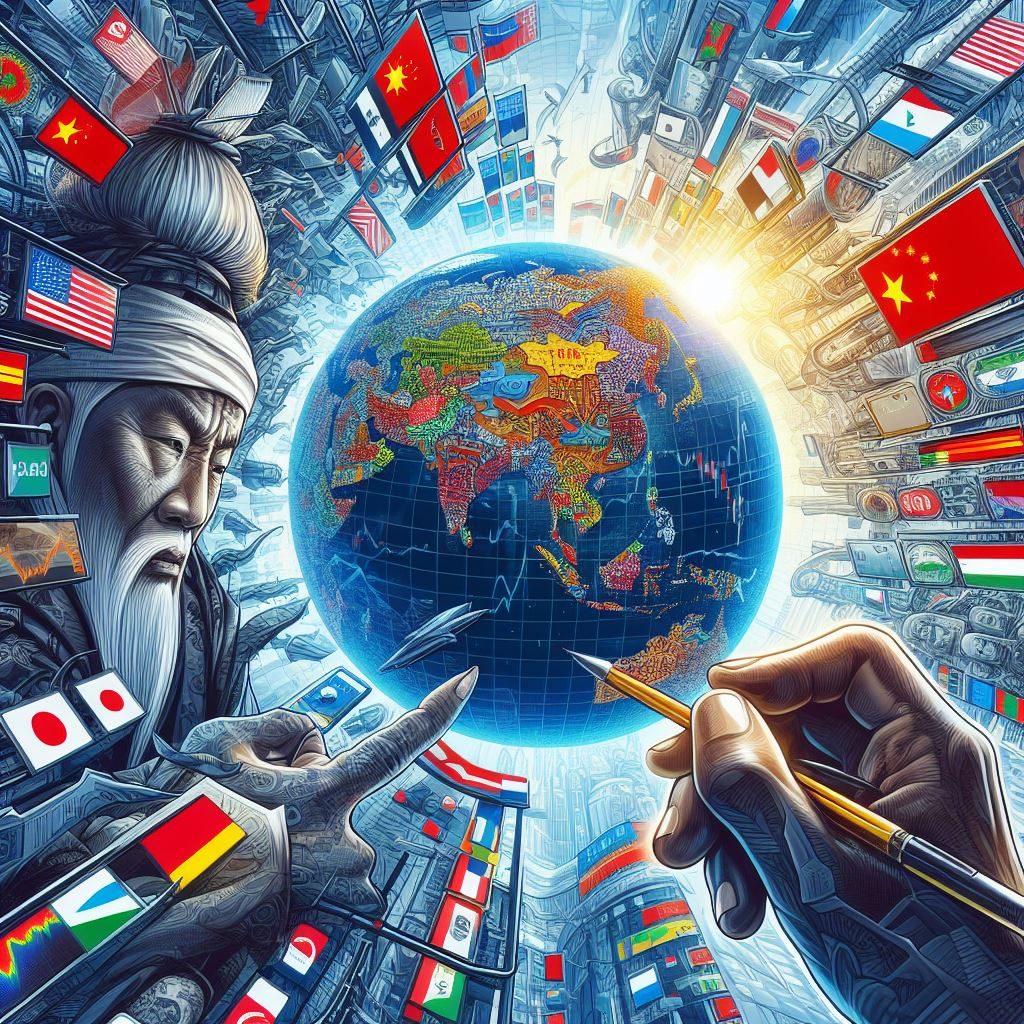The Artificial Intelligence (AI) Safety Summit 2023, hosted by British Prime Minister Rishi Sunak and Technology Secretary Michelle Donelan, has kicked off at Bletchley Park in Buckinghamshire, England. This landmark event, running from November 1 to 2, has drawn participants from leading global tech companies, renowned academic institutions specializing in AI, influential think tanks, and government representatives from 28 countries. One notable presence at this summit is China, led by Vice Minister of Science and Technology Wu Zhaohui, highlighting the nation’s pivotal role in the AI industry.
China’s emergence in the AI landscape
China’s rapid ascent in the scientific and technological sectors has been nothing short of astonishing in recent years. Over the past decade, China has taken a leadership role in various AI-related industries, including robotics, drones, cloud computing, and AI-led smart assistants. This surge of success has sparked intense scrutiny and debate in the Western world, particularly the United States, which has raised concerns about China’s growing influence and capabilities in AI.
Some Western countries have viewed China’s AI strategy as a tool for state control and national security, leading to efforts to curb China’s progress in these fields. Critics have accused China of seeking to dominate AI to an extent that could make other nations overly dependent on Chinese technology. Former British Prime Minister Liz Truss, in a highly critical comment on social media, expressed her opposition to China’s presence at the summit, citing concerns about China’s attitude toward international law and democracy.
Western concerns and anti-chinese sentiment
Liz Truss’s remarks reflect a broader trend of anti-Chinese sentiment that has emerged in Western countries. This sentiment often revolves around China’s technological advancements and its perceived challenges to Western values and influence. Critics argue that inviting China to such international gatherings is counterproductive and that it may compromise the principles of freedom and democracy that the Western world holds dear.
In her letter to Prime Minister Sunak, Truss went on to assert that “no reasonable person expects China to abide by anything agreed at this kind of summit, given their cavalier attitude to international law.” This statement underscores the deep-seated skepticism that some Western politicians have towards China’s intentions and reliability as a global partner.
Sunak’s defense of China’s invitation
Prime Minister Rishi Sunak, on the other hand, has defended his decision to include China in the AI Safety Summit 2023. He believes that engaging with China on AI-related matters is not only beneficial but also necessary for the advancement of AI technologies globally. Sunak stated that inviting China was “absolutely the right thing” to do, emphasizing the importance of cooperation among major AI powers like the United States, China, and the United Kingdom.
China’s AI achievements
China’s impressive progress in AI-related industries is undeniable. The nation has made significant strides in areas such as image recognition, voice and language translation, behavioral analytics, intelligent robotics, unmanned stores, and self-driving vehicles. It boasts 79 major AI language models, with tech giants like Baidu, Alibaba, Tencent, Meituan, and iFLYTEK all contributing to this vibrant ecosystem.
China’s overarching ambition is to achieve AI breakthroughs by 2025 and emerge as a global leader in AI by 2030. Key advantages driving this goal include the world’s largest base of internet users (1.05 billion), an abundance of AI data, advanced AI infrastructure, and supportive government policies. These factors collectively position China as a formidable force in the AI arena.
Global recognition of China’s innovation
The Global Innovation Index for 2022 ranked China as the 11th most innovative country in the world. This recognition underscores China’s growing influence and innovation capabilities, particularly in the field of AI. Recent events, such as the Hangzhou Asian Games, have solidified China’s reputation as a major contributor to AI-powered cloud computing, further establishing the nation as a world-leading science and technology powerhouse.
The bletchley declaration and AI security
On the first day of the AI Safety Summit 2023, a significant development occurred with the publication of the Bletchley Declaration. This declaration was jointly agreed upon by 28 countries and the European Union, and it aims to bolster global efforts to cooperate on AI security. The summit has provided a platform for participating countries, AI scientists, and organizations to exchange ideas on mitigating the risks posed by AI technologies.
China’s global AI governance initiative
During the summit, discussions also centered around the Global AI Governance Initiative, launched by China on October 18. This initiative seeks to promote AI development based on principles of mutual respect, equality, and mutual benefit among countries. The summit has offered an opportunity for stakeholders to engage with this initiative and explore ways to ensure responsible and secure AI development on a global scale.
The AI Safety Summit 2023 has brought together key players in the AI industry and policymakers from around the world. While China’s presence has sparked controversy and debate, it also highlights the nation’s pivotal role in shaping the future of AI. As the summit continues, the global community is faced with the task of finding common ground and building cooperation to address the challenges and opportunities presented by AI in the 21st century. The world watches with anticipation as discussions unfold at Bletchley Park, with the hope of forging a path towards safer and more responsible AI technologies for all.




